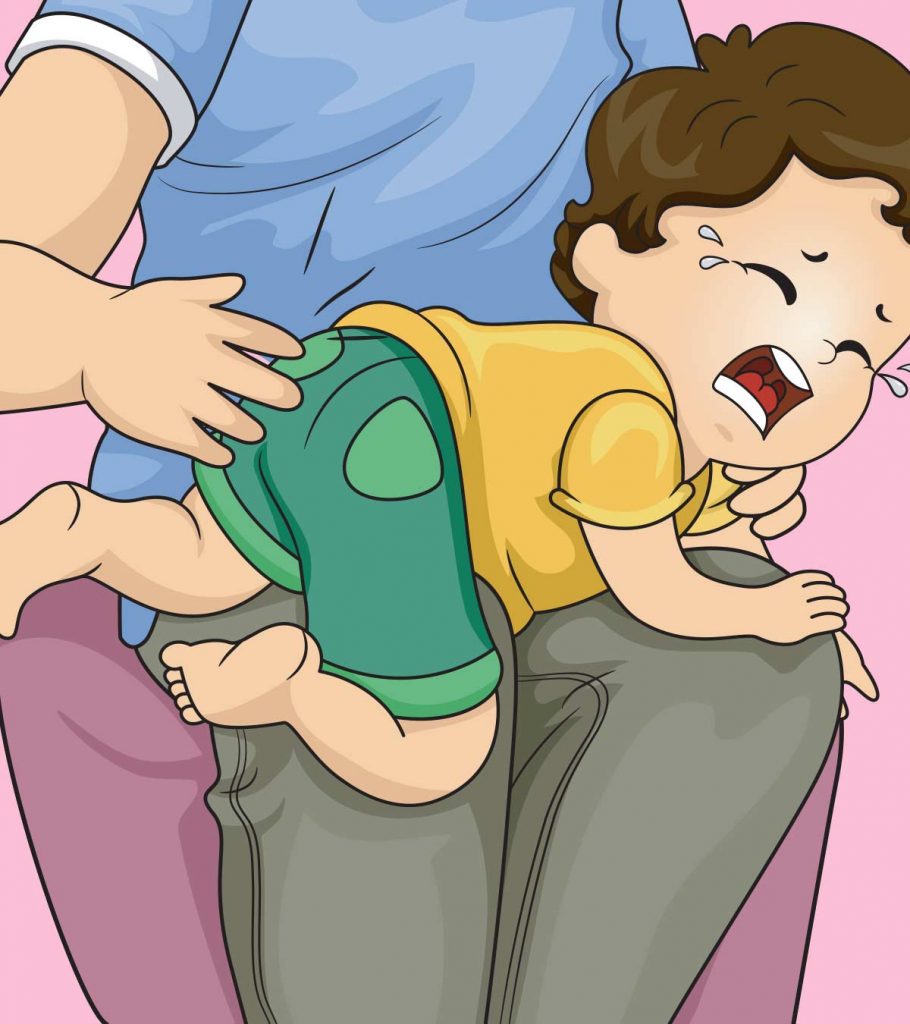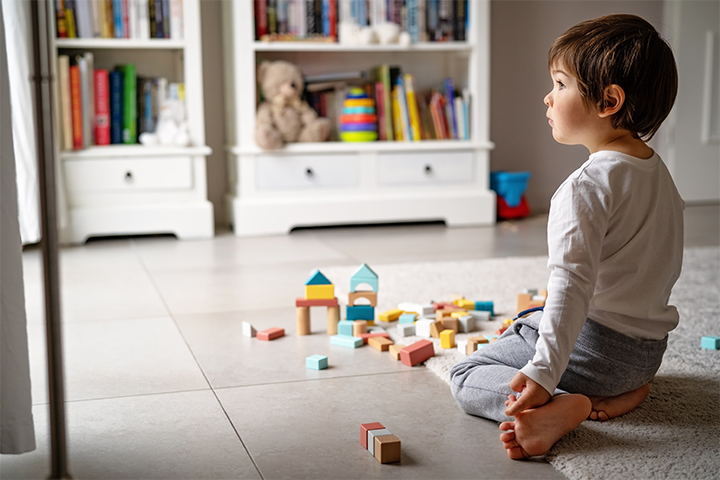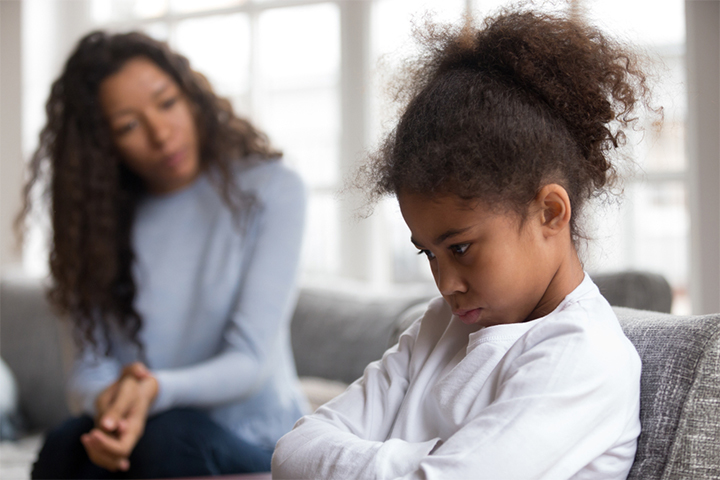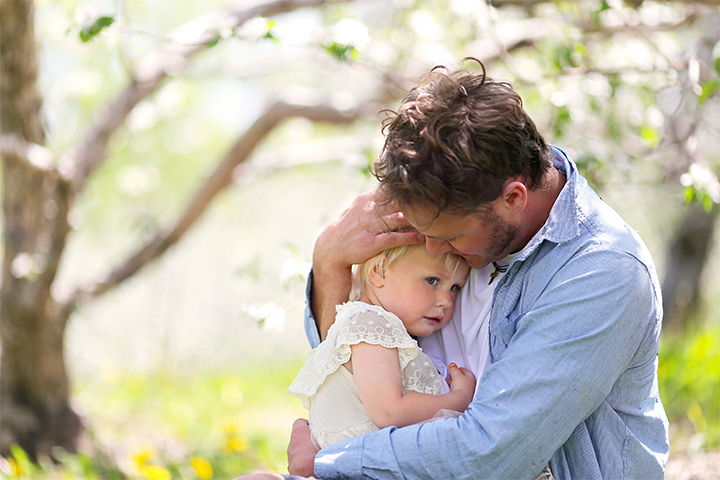Spanking babies is an unsuitable technique for disciplining or teaching a behavior. It can be traumatic, counterproductive, and affect normal mental development. The American Academy of Pediatrics (AAP) warns of the impact of spanking and other harmful techniques, including paddling, to control children’s behavior (1).
Some parents may hit or spank their little ones out of stress or frustration when the babies throw tantrums. Instead, be patient and stay calm when your baby acts out or throws objects to express their tantrums. Use positive reinforcement rather than punishment to manage any unpleasant behaviors.
Read on to know the harmful impacts of spanking babies and a few positive behavior reinforcement methods to manage your baby’s behavior.
Why Spanking Babies Is Harmful
A longitudinal study of 2,788 families with newborns conducted by the University of Michigan found that spanking babies is surprisingly common. The study found that some parents spank babies as young as one year of age (2). In addition, according to the American Family Survey 2021, it was found that 47% of parents strongly agree with the practice of spanking children, whereas only 35% of them completely disagree in this context.
Spanking may hinder the child’s physical as well as mental development. Besides, if spanking is executed out of anger or frustration by a parent or caregiver, it may cause injury to the baby. Spanking is also associated with greater aggression, depression, and other negative behavior in children (2).
Why You Shouldn’t Spank Your Toddler Baby
Toddlers and babies aren’t mature enough and can hardly differentiate between right and wrong. It might be unfair to use physical force and pain to make them understand things. Here are a few reasons why you should not spank your baby or toddler (1):
1. Sets a violent example
Babies often imitate their parents or caregivers. You may set a negative example to the little one by using spanking frequently. They would perceive it to be normal and a means to get the desired things done. There are also chances that toddlers who are often spanked may indulge in similar or more aggressive lash-outs (or bullying) with other kids in school.
2. Doesn’t boost a child’s morale
Spanking during infancy may suppress the child’s personality. It may be humiliating and hurt their self-esteem once they grow older. They might grow up lacking confidence, which might further hamper their cognitive development.
3. Doesn’t teach kids to cope
Babies who have experienced spanking or smacking often might not learn the qualities of patience or self-control. They might be unable to cope up with a stressful situation or a conflict. Such kids often find it challenging to deal with a crisis or get depressed. They might also behave aggressively when frustrated or angry.
4. Can lead to serious physical injury
Impulsive slapping and spanking are physically harmful to the baby. When angry or frustrated, a parent might raise a hand or spank the child with an uncontrolled force. Spanking a physically weak baby can cause trauma.
5. Doesn’t work the way you want
As many parents believe, spanking and berating doesn’t promote good behavior in their babies. On the other hand, as babies mimic elders, they may learn aggressive behavior, which is the opposite of what you would want to incorporate in them. They might perceive that it is right to deal with undesired situations using physical force. This can make them defiant and aggressive in pre-school.
6. Raises the risk of problems now and later
Spanking and chastising not only harm the baby physically but may also have a long-lasting impact on their mental health in the future. It can also adversely affect the parent-child relationship.
7. Makes you feel bad
You might spank the baby in the heat of the moment out of frustration. This might lead to a feeling of guilt later on.
When Does Spanking Become Dangerous?
Parents might resort to spanking in the name of discipline. However, they should remember that it is a kind of physical abuse. Spanking may become dangerous in any of the following cases (3) (4):
- Repetitive or routine spanking to manage the behavior of the child
- Tendency to spank the child more than once to get rid of the anger
- Any sign of physical injury or mark on the baby’s body – this requires an immediate visit to the child’s doctor for evaluation
- Spanking out of rage with uncontrolled force
- Spanking the baby under the influence of alcohol or drugs
- Spanking the baby using a belt or any other object
If either parents or other family members display such abusive tendencies, it is dangerous for the baby. Any of these cases would require the intervention of a therapist or child protective services (CPS). In case there is any suspicion of spanking by the babysitter or teacher, they should be reported right away.
When Is Spanking Acceptable?
Spanking is acceptable in the following cases:
1. Doctor spanking the newborn
Doctors or nurses in the past would spank a newborn’s butt by holding them upside down to clear the fluid from the airway and initiate crying to help the baby take their first breath. Spanking has now been replaced with massaging or stroking the baby’s skin. Suctioning the fluid from the nose or mouth can also aid them to take the first breath (5).
2. Spanking an infant affected with severe choking
When any food or object gets stuck in a baby’s airway, it can lead to respiratory distress. The baby needs to be held on the arm with the face facing the floor followed by five to six back spanks to alleviate the choking (6).
Thus, spanking may be acceptable in the cases of breathing or choking emergencies.
Some Effective Alternatives To Spanking A Baby
Spanking or any form of corporal punishment is ineffective or counterproductive in molding a child’s behavior. Parents should stop spanking babies and consider following a few of these age-appropriate alternatives to discipline their little ones (4) (7) (8) (9).
1. Use a firm ‘no’
Infants below one year of age cannot distinguish between good or bad, so they can’t follow the rules. Using a firm ‘no’ to stop them from doing certain things can help them understand inappropriate behavior. The babies will associate ‘no’ with the objects they are not supposed to touch or actions they are not supposed to do, thus avoiding misbehavior.
2. Reward positive behavior
Never miss a chance to appreciate a good deed or conduct of the child, such as when they share a toy or snack. Praising them would encourage them to repeat the act.
3. Try to redirect their attention
Babies and toddlers usually throw tantrums if they are refused something, so diverting their attention to some other activity or toy may help. They can be made to engage in other tasks, forget the previous one, and stop crying.
Cynthia, a blogger and mom of five, suggests a playful approach to handling a child’s frustration, “I recall a time when my frustrated toddler huffed at me. I could have lectured him about manners. I could have sent him to his room to rest until he felt more cheerful. If I had believed in using violence in parenting, I could have spanked his bottom. Or, I could have huffed back at him. So I did. And he huffed back at me. And I huffed back at him. Soon, we were huffing back and forth through a fit of giggles, and both of us were able to cheerfully carry on with our day (i).” Such light-hearted tactics can shift their attention and divert them from temper tantrums.
4. Take time-out
Set or take a short time-out. This works well for both the parent and the baby to calm down and introspect. One minute for every year is a rule of thumb. For example, set a one-minute time-out for a one-year-old child, two minutes for a two-year-old, and so on. Toddlers above three years of age are capable of having certain rational discussions; hence, ask them to take a time-out and get back to you whenever they are ready to talk.
5. Talk it out
Preschoolers and older babies can understand instructions. Let them calm down or stop crying before talking to them. Having conversations with them makes them feel they are heard and understood. Encourage them to use words to express themselves instead of crying or lashing out.
6. Let them know the consequences for their actions
Let the baby know the consequences of their misbehavior while reprimanding them appropriately. If they throw their toys, ask them to gather them and arrange them neatly. In the case of older babies, you may need to resort to other punishing measures, such as taking away their favorite toys, playtime with their friends, or TV time if they misbehave. Let them know that every bad action will have consequences, and they will avoid repeating it.
If you believe that spanking babies is the best way to discipline them, think again. Spanking at any age has been shown to severely influence kids’ mental and physical well-being while also failing to discipline them. It may teach your child to believe that being violent is acceptable later in life, which may repress their personality. You may also feel bad and guilty due to your rash action. Instead, adopt good conduct when disciplining your babies and toddlers. If they throw tantrums, redirect their focus and take a short time-out to calm down.
Key Pointers
- Spanking is an inappropriate way to deal with babies.
- It may set a violent example, make them lose self-esteem, or behave aggressively.
- It is acceptable as a part of a medical procedure, such as stimulating breathing after birth.
- Positive reinforcement, taking time-out, using a firm ‘no,’ or other methods are alternatives to discipline a child.















